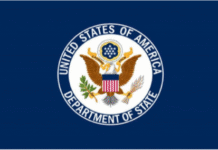
With the formal opening, Bangladesh enters the e-Passport era as the first country in South Asia
Bangladesh has officially entered the era of e-Passports (electronic passport) as the first country in South Asia.
The introduction of e-Passports will undoubtedly brighten the country’s image further in the digital world, Prime Minister Sheikh Hasina said yesterday while inaugurating e-Passport services at the Bangabandhu International Conference Centre in Dhaka, reports UNB.
“Bangladesh has advanced one more step in the digital era by undertaking the e-Passport project. We can provide e-Passports to people in the special year of the birth centenary celebrations of the Father of the Nation,” she said.
At the function, the prime minister received her e-Passport from Home Minister Asaduzzaman Khan Kamal.
The e-Passports are now initially being issued from three offices — Uttara, Jatrabari and Agargaon — of the Department of Immigration and Passports in Dhaka. These offices have the capacity to issue 25,000 passports every day.
Noting that 118 countries around the world had already introduced e-Passports, she said: “Bangladesh is the first country in South Asia and 119th country in the world to introduce e-Passports.”
Hasina said the goal was to make passport and immigration services more time-befitting and so keeping pace with the developed world.
She said it had been heard that when expatriates returned home, they were subjected to various types of harassment. “People returning home and going abroad won’t be subjected to harassment in the future.”
Noting that the people of the country had achieved financial solvency with the development of the economy, she said now a large number of people went abroad and expatriates were making a significant contribution to the economy by sending remittances home.
“So, we’re paying attention so that they [expatriates] are not be subjected to any kind of harassment,” said the prime minister.
 Prime Minister Sheikh Hasina at the inauguration of e-passport services at the Bangabandhu International Conference Centre (BICC) in Dhaka on Wednesday, January 22, 2020 | Focus Bangla
Prime Minister Sheikh Hasina at the inauguration of e-passport services at the Bangabandhu International Conference Centre (BICC) in Dhaka on Wednesday, January 22, 2020 | Focus Bangla
The e-Passport and automated border control management project, involving a cost of Tk4,569 crore, is being implemented by the DIP and the German company Veridos GmbH with assistance from the Bangladesh Army under the Home Ministry’s Security Services Division.
A total of 30 million e-Passports will be issued in 10 years under the project.
The DIP and Germany Veridos signed an agreement on July 19, 2018 for issuance of electronic passports alongside machine-readable ones.
Digital revolution
The prime minister said her government had started issuing machine readable passports on November 24, 2015 and had now taken measures to provide e-Passports for 10 years beginning with the 2018-19 fiscal year.
“The government has taken passport, visa and immigration services to the doorsteps of people through 69 passport offices in 64 districts and 33 immigration check-posts around the country, and the passport and visa wings of 75 Bangladesh missions stationed in foreign lands,” she said.
In the past, there was a problem of fake passports, or “golakata passports,” in the country, but that will never happen again, she said.
She said people would not fall victim to deception as they, with e-Passports, would easily be able to complete immigration through e-Gates in a transparent way.
Mentioning that her party, the ruling Awami League, in its 2008 election manifesto had declared its goal of building the country as Digital Bangladesh, Hasina said Bangladesh had witnessed a digital revolution and the government had been able to provide internet services almost throughout the country.
She said her government’s goal was to take Bangladesh to a dignified position and to that end it had been working relentlessly.
She congratulated people as they would be getting e-Passports with the latest technology in the Mujib Year, or Mujib Borsho, which will be celebrated from March 2020 to March 2021.
Home Minister Kamal, Security Services Division Secretary Md Shahiduzzaman and German Ambassador to Bangladesh Peter Fahrenholtz also spoke at the e-Passport launching ceremony yesterday.
DIP Director General Maj Gen Shakil Ahmed delivered the welcome speech, while e-Passport Project Director Brig Gen Saidur Rahman Khan made a presentation on e-Passport services.









